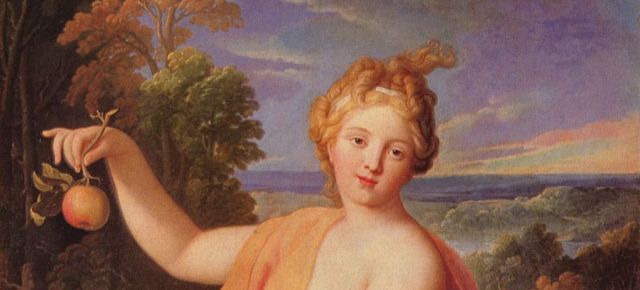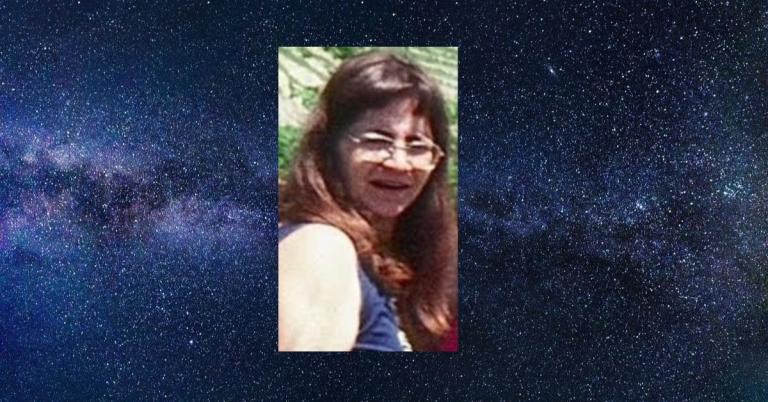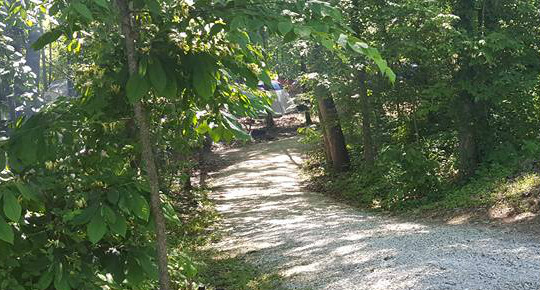
We need to talk about aging. After all, if we live long enough, we’re all going to experience it. A lot of people have done significant work calling out sexism and racism in the general culture and the magical communities. We haven’t done a lot of work around ageism and it’s overdue.
In the power hierarchies man trumps woman, white trumps color, young trumps old. Unlike traditional and healthy communities, in the general culture older people are targets, vulnerable, exploited. We’re the butt of jokes – where racist and sexist humor is called out it’s still acceptable to laugh at little old ladies.
Out with the Old!
A few years back a man who was considered an elder in the magical communities was found to have been abusing women and even children. He’d used his position of authority and respect as a predator. It’s not a new story, I have sadly seen this over and over. This time was different in that people decided to blame his age instead of his gender. There was a general revolt: we don’t need elders! This won’t happen again if we banish elders from our communities.
I’ve done a lot of work calling out sexual exploitation. An elder man abusing women and children spotlights the need to develop tools to prevent abuse. The word “elder” here means person in a position of authority. In the magical communities I’ve seen people use their authority to engage in abuse of many kinds and our protections need to incorporate that. The word “elder” also means teacher. It’s vital to challenge conventional ideas and re-examine them – I’ve been doing that all my life! But we need a more nuanced response than rejecting all teachers. Humans learn from each other, children learn from their parents, and traditional communities recognize the accumulated experience and knowledge of elder members.
I’m fortunate enough to have an example of a healthy community right next door. I live on the ancestral lands of the Suquamish Tribe. The tribe is an example of a mature community. They recognized same sex marriage before the state and the country did, they strongly advocated for police reform when a native man was shot and killed, they lead environmental efforts to preserve the Salish Sea.
I participate in the extended network of community that connects with the tribe. I learn their history from their own museum, I attend Chief Seattle Days, and when the tribe asks the community to come to the long house to support them I show up. It’s been startling to be extended respect on the reservation as an elder even though I am not a tribal member. The ticket taker at the museum charged me a senior rate without being asked for it, and when I questioned her she smiled and said “We respect elders.” At a potluck dinner the announcement came for elders to go to the tables first and I was motioned forward. Tribal elders return this respect by recognizing their responsibilities to the community. At a meeting in the longhouse I saw a tribal man stand up and say slowly that he had been told he was an elder now and he was trying to figure out how to be a good one.
These experiences have been profoundly moving. They’ve inspired me to meditate on what a healthy relationship between generations would mean for the magical communities. As a beginning I think that what we need is mutual respect between the generations, where older people support experimentation and younger people recognize the guidance of experience as a helpful resource. Just as sexism launches the gender war and racism gives poor whites something to feel superior about, ageism separates younger people from the generational resources that can help overcome oppression.
No Longer Useful
The rejection of elders in magical communities aligns with the general culture. It dovetails with the corporate and capitalist idea that an aging workforce needs to turn over to maximize productivity and profit. In the first few months of the pandemic there was even the idea that older people should just go ahead and die already and save everyone their care. There are so many older people struggling to live on fixed incomes. Politicians routinely threaten Social Security and Medicare which terrorizes an entire population.
In America we value physical youth, health, new ideas and innovation. This comes at the expense of tradition and age, we push out established ideas and people. I spent the last years of my corporate life pretending I was a decade younger than my actual age. I’d interview for internal jobs and get the question “what do you want to be when you grow up?” as if being fully grown was not an option. End of career did not equate to valued contributor. When I retired my manager’s manager was astonished – he’d never had someone do that before.
The pandemic further isolated our vulnerable elder population. I noticed that some magical communities reached out to their older members, I got several Zoom calls from people wanting to make sure I was okay. That’s a welcome move toward a more humane and balanced magical culture.
The Intersection of Age and Gender
Like much of what happens in our culture, our experience of aging is influenced by our perceived or chosen gender. Older men get the glory. A little bit of gray hair makes a man look distinguished. An experienced man is the sage, the senex, the wise old man who shows up in stories to give critical guidance to the hero. In art he is the Old Master.
Women are supposed to be young and beautiful. Young women endure the relentless judgement of the public gaze in which every flaw is minutely examined. To be valued only for how you look is insulting. At menopause the spotlight shuts off which is something of a relief, except now it means that you no longer exist at all. Old women vanish from media and the public gaze passes over us as if we’re invisible. It takes an effort of women’s studies to recognize the artistic accomplishments of the Old Mistresses.
Even Goddess gets this treatment. Robert Graves typed the Triple Goddess as Maiden, Mother and Crone, which translates into the relationship women have with men: pre-sexual, sexually available and fertile, post-fertile and no longer useful. The crone is the withered, ugly, cruel Witch.
The Pagan and magical communities are working to change these ideas. The new media image of the Witch is a beautiful young woman. I’m happy to see positive images of Witches but note that this plays into the cultural requirement that women be young and beautiful to be valuable.
Magical women organize croning ceremonies to honor women’s leadership. It’s a great thought and it works for some people. However I was glad when my best friend’s teaching coven contacted me to ask for advice about a surprise croning they were planning for her. I told them to contact her directly. They got a strong “thanks but no thanks!” Because of the cultural image of crone, calling someone a crone can register as condescending. We might be able to rehabilitate this word just as we did Witch but it will take time.
I haven’t defined myself by my relationship to men. I didn’t relate to the Maiden as a young woman, I was sexually active. I didn’t relate to the Mother as I have never borne children. The post-sexual Crone doesn’t offer me power either. I look for another way to imagine myself as a powerful woman of age.
Grandmother Goddess
We need to find positive images of older women. We can start with Goddess. I do a lot of work with both Greek and Hindu deities, but unfortunately these pantheons share the patriarchal flaw that goddesses are supposed to be young and beautiful while older goddesses are withered and bring bad fortune. That’s in the official canon, but in the countryside we find the gramma devata, the guardian spirit who protects and blesses the village. Gramma devata are often female and often honored specifically in large old trees which are decorated and venerated.
In Jailbreaking the Goddess Lasara Firefox Allen gave us a five-fold Goddess which maps a journey from beginnings, through potential, creativity, mastery, and arriving at wisdom. This leads us to the cultural image of the wise old woman. It’s buried, it takes some digging to find, but it’s strong. Some cultures call her the grandmother. She is the matriarch, the heart of the family, the one who organizes holiday gatherings, who keeps the group together.
I draw inspiration from the culture of the orcas. Killer whale pods are matriarchal and menopausal females can live to 90. The pods which are led by older females are significantly more successful than those which lose them. The grandmother whales know the migration routes and the best hunting grounds. They take care of the younger whales in the pod. This happens for humans too, it’s just that the work of our grandmothers is invisible. We can turn the insight we gain from studying the orcas to illuminating what happens in our own species. Older women who can share child-rearing and keep important information are a net positive for the cultural group.
The Power of Menopause
Culturally menopause marks the end of a woman’s beauty and value. We don’t talk about it and we don’t study it. When I entered menopause I was shocked to discover the shamed silence that prevents us from learning about these physical changes. When we do talk about it we fear it and try to stop it. We’re offered hormones to try to stave off the change for as long as possible, to hang onto the sexual power which keeps women culturally visible.
My doctor advised me that hormones can extend the physical symptoms of perimenopause. We agreed that I would only take hormones if the physical effects became unmanageable. They’re unsettling to be sure – my first migraine was the Herald of the Change. I was startled to feel flashes of rage and embarrassed by the flush of hot flashes. However my doctor turned out to be right for me. I’ve talked to women who took hormones and lived with these symptoms for fifteen years or more. Two years after the process started the migraines and hot flashes stopped. It gets better!
More than one person living through a hysterectomy or menopause has talked to me about experiencing grief. It isn’t just the cultural loss of power, magical people can tune into the power of the blood. While I was menstrual I tapped into the cleansing flow every month. I’d use the powerful first day to flush out illness and distress. The blood carries the nourishment meant to sustain a new life and I collected it to anoint power objects. It’s a secret of sex magic that tasting your own menstrual blood can sustain your physical and emotional health.
We approach menopause as a loss. Leaning into menopause changed my experience. I read somewhere that menopausal people gain access to knowledge that we didn’t have as menstrual people. This idea helped me tremendously as I moved through the change, it turned my attention from what I was losing to what I was gaining.
Menopause changes our relationship to the physical world. For one thing we become more sensitive to scent. I’m convinced this is a superpower, we become detectors of toxins. The smell of dryer sheets from my neighbor’s laundry registers to me as a poison. I find myself using scent to detect illness too.
Menopause changes our relationship to each other. Now when I walk into a party suite the other menopausal people and I trade glances of instant recognition. There’s a secret body of knowledge that gets passed between menopausal people. My Tantric teacher tells me that menopause means that you keep the power of your blood within you. When the flow stops we start building up a pool of power. The longer we live, the greater the depth of stored power we contain.
The Wise Woman
Biology is not destiny. I use the terms “menstrual people” and “menopausal people” recognizing that some people who have wombs identify as male. The womb, menstruation, and menopause do exist, and we need to talk about them, but we don’t need them as gatekeepers to the idea of woman, any more than we need motherhood, intuition or the willingness to do other people’s housework without complaint.
Gender is cultural. It is culture that expects women to care for children which in turn makes women the bearers of culture. Mother is the first teacher. Culture also expects children to grow out of needing mother, to transition authority to the men in charge who take over the job of teaching and shaping lives.
Women, men, and all genders can teach and create. However in the general culture the Wise Old Man is respected while the Withered Old Hag is not. We don’t have to reject the Wise Old Man to redress the gender balance but we do need an effort to celebrate the Wise Old Woman. From that balance can emerge a rounded image of the Wise Old Person, defined not by gender, age, or race, but by contribution.
Leaning into menopause helped me to embrace the positive aspects of aging. When I retired from my corporate job I stopped cutting and dying my hair. It’s the longest it’s ever been and it’s a beautiful ombre gray. Other older women admire the way it looks when I wear it down. I love seeing the mark of age on my hair. I love seeing the mark of age on my skin. I love the lines that mean I have experience, knowledge. Wisdom.
The Wise Old Woman is the powerful Witch, the one whose stories guide us, whose food nourishes us, whose life inspires us. She protects us, she can curse, but she prefers to heal. She insists on being visible. She links us to our past, to our origins, connecting us to the wellspring of our physical lives and our cultures. She preserves her power, shares her power, encourages us all to recognize our own power. She is necessary, and fortunately for all of us, she knows that.



